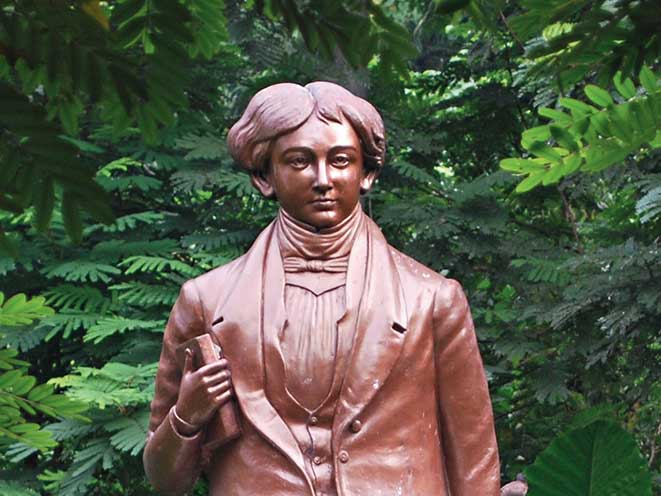Henry Louis Vivian Derozio, the radical thinker, poet and patriot who blazed a trail through the intellectual and cultural world of Bengal, was born on this day. A teacher, he would inspire his band of dedicated students with liberal ideas and unsettle conservative Hindu society to its core.
Born in Entally-Padmapukur in Calcutta to an Indian-Portuguese father and an English mother, Derozio attended David Drummond’s Dharmatala Academy, which he praised later for its liberal approach. He could have imbibed his religious scepticism from Drummond.
He was a brilliant student, well-versed in the poetry of his contemporaries, the Great Romantics: Keats, Shelley and Byron.
He began to publish his poetry when he was 17 and caught the attention of the intellectual circles in Calcutta. The editor, John Grant, had noticed him. After working first at his father’s office in Calcutta and then his uncle’s indigo factory in Bhagalpur, in 1826, he was appointed a teacher at Hindu College, where he became a sensation.
His teaching style and his ideas based on rationalism attracted students like a magnet. He questioned orthodox religious beliefs and encouraged free thinking. He challenged orthodox Hindu beliefs and rituals.
His influence reached so deep that some Hindu parents accused him of irreverence to their religion and he was forced to resign from Hindu College in 1831. He died of cholera at age 22. His poem To India — My Native Land remains popular.
The group of students who had gathered around him came to be known as Young Bengal and they tried to carry on his work. The Academic Association had been established in 1828 under Derozio’s guidance and had as its members Rasik Krishna Mallick, Krishna Mohan Banerjee, Ramgopal Ghosh, Radhanath Sikdar Ramtanu Lahiri, Sib Chandra Deb and Peary Chand Mitra.
Later, The Society for the Acquisition of General Knowledge was established in 1838 with similar purpose.
